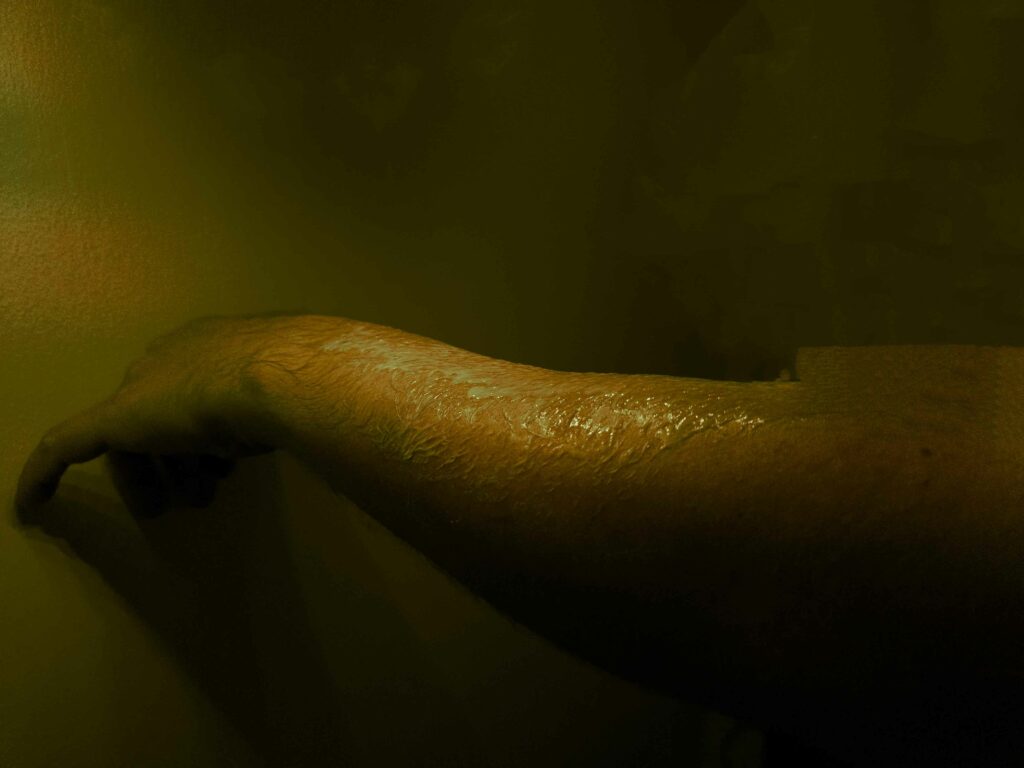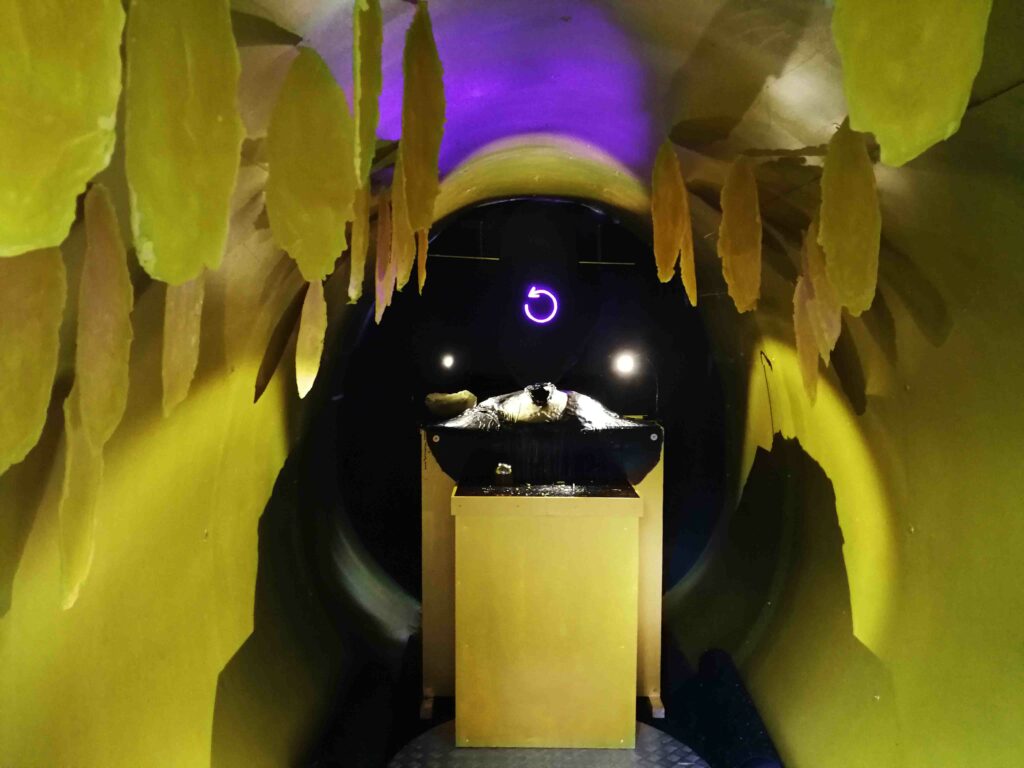


WAX ROOM : REMELTED Installation and performance, architecture (wooden construction), wax, beeswax, granite slab, brass rod, chains, LEDs, ointment made from beeswax, 2020
Plato compares human memory to a wax tablet on which experiences are imprinted. Aristotle takes the metaphor further, likening the soul to a wax tablet (tabula) whose wax surface could be written upon and then erased by scraping, until the tablet needed to be remoulded. The state of the blank or smoothed wax tablet is referred to as tabula rasa. In philosophy, tabula rasa also describes the ‘blank’ soul of a newborn, still free from external impressions. Science continues to debate whether we are shaped solely by our life experiences or whether inherited traits already define us.
Aristotle asserted that women are natural deformities or imperfect men. The theory of the ‘Wandering Womb’ similarly originates from ancient Greece, positing that the female uterus could move freely around the body, causing various diseases and emotional disturbances.
This outdated medical notion, prominently discussed in the writings of Hippocrates, was long used to explain hysteria and other so-called ‘female-typical’ ailments.
Until the 1980s, medicine was predominantly male-oriented. Today, the relatively young discipline of gender medicine considers gender as a factor influencing health and aims to ensure equitable healthcare opportunities for all genders in the future.
Due to its resemblance to skin and the body’s interior, wax has a long tradition in the reproduction of the human form (ceroplasty). WAX ROOM: REMELTED is a fictional journey back into the uterus. Wax plates are inscribed anew, and beeswax-based ointment becomes part of the skin. ///
WAX ROOM : REMELTED
